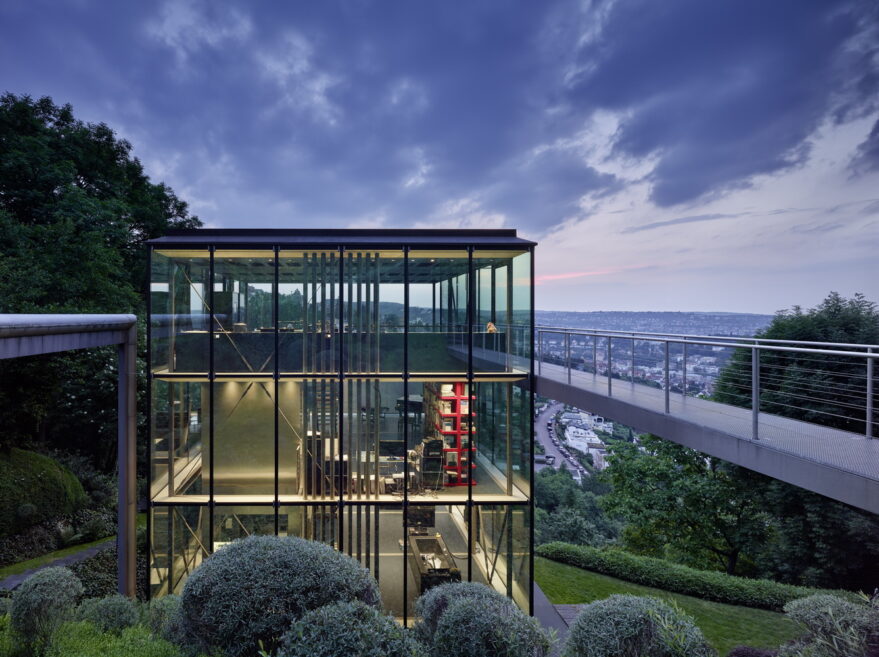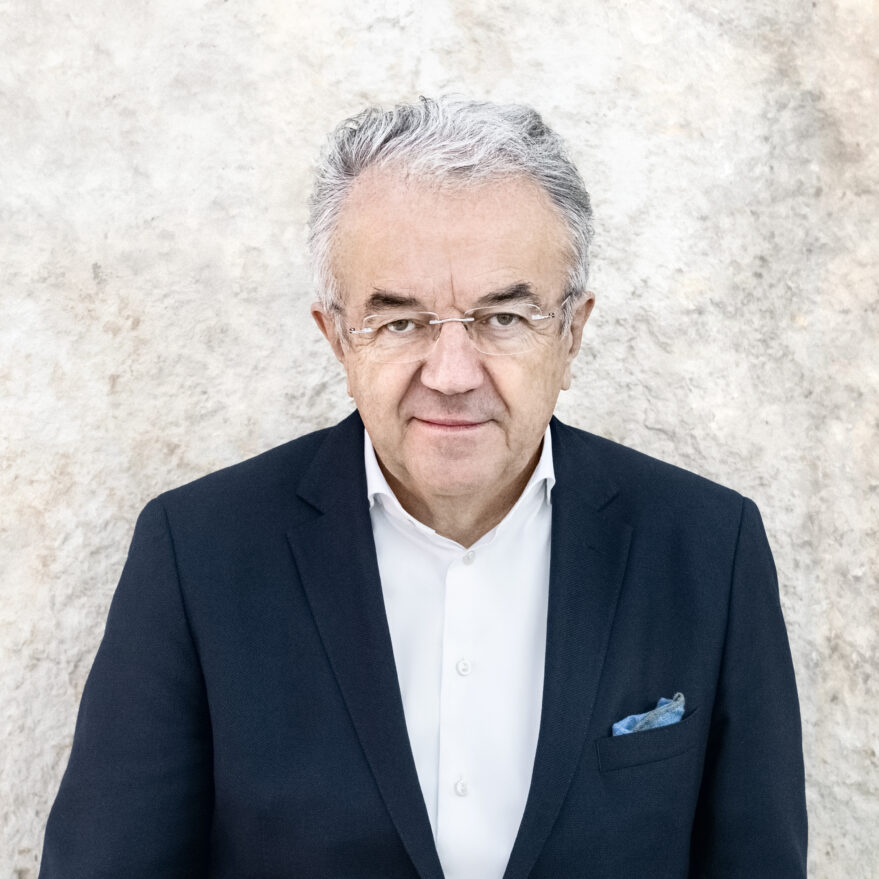We want to create a breathtakingly beautiful built environment. Serving the interests of future generations.
Our aim is to realize sustainable and emissions-free structures. Since we will have to build for more people, using less material in the future. This is why our exceptional designs, innovative structural solutions and holistic concepts are made to minimise our impact on the environment.
Werner Sobek stands for sustainable engineering and design worldwide.
As engineers, we see ourselves as pioneers for a future-proof environment. The combination of high-quality engineering and attractively designed sustainability is therefore the foundation of our actions.
Our company has more than 400 employees and is represented internationally. People from more than 40 countries work in our offices, speaking just as many languages. We work on all types of structures and materials. Werner Sobek places particular emphasis on the design and planning of load-bearing structures, facades and technical building equipment, as well as on advice on building physics.
The Triple Zero Concept
The Triple Zero concept developed by Werner Sobek in the 1990s is the essential basis of our thinking and acting. This describes in a short, concise formula the requirements that sustainable buildings or urban quarters should ideally fulfill.
Our projects should not consume more energy than they generate on an annual average from sustainable sources (zero energy), should not produce any emissions of carbon dioxide or other substances that are harmful to people and the environment (zero emissions), and should be completely recyclable (zero waste).
Global Partnerships
Werner Sobek collaborates with leading architectural practices such as Baumschlager Eberle Architekten, Henn, Ingenhoven, JAHN, JSWD, Ole Scheeren, Populous, Sauerbruch Hutton, UNStudio, and Zaha Hadid Architects. We support architects, commissioning clients, contractors, and property developers at every stage of the planning process. Our offer ranges from the very first conceptual deliberations right through to execution planning and on-site quality assurance. We work with our interdisciplinary team to develop concepts that combine our core competencies of engineering, sustainability and design in an exemplary way. We see ourselves as both a think tank and a forge for ideas that will transform the construction industry and guide it towards an emissions-free future.
Our Founder
The company was founded in 1992 by Prof. Dr. Dr. E.h. Dr. h.c. Werner Sobek. He accompanies the company as chairman of the supervisory board and as a creative mastermind.
Board of Directors
Operational and strategic leadership is provided by the four members of our executive board. Like the vast majority of our management personnel, these executives have all been linked with the company for many years.
We Are People-Owned
It is important to us that our colleagues feel connected with their firm — that is why we give managers the opportunity to acquire shares in the company themselves. Werner Sobek is proud to be an independent, ‘people-owned’ organisation that is in the hands of its employees!
Impressions
Here’s a little insight into our everyday company life and celebrations!






























